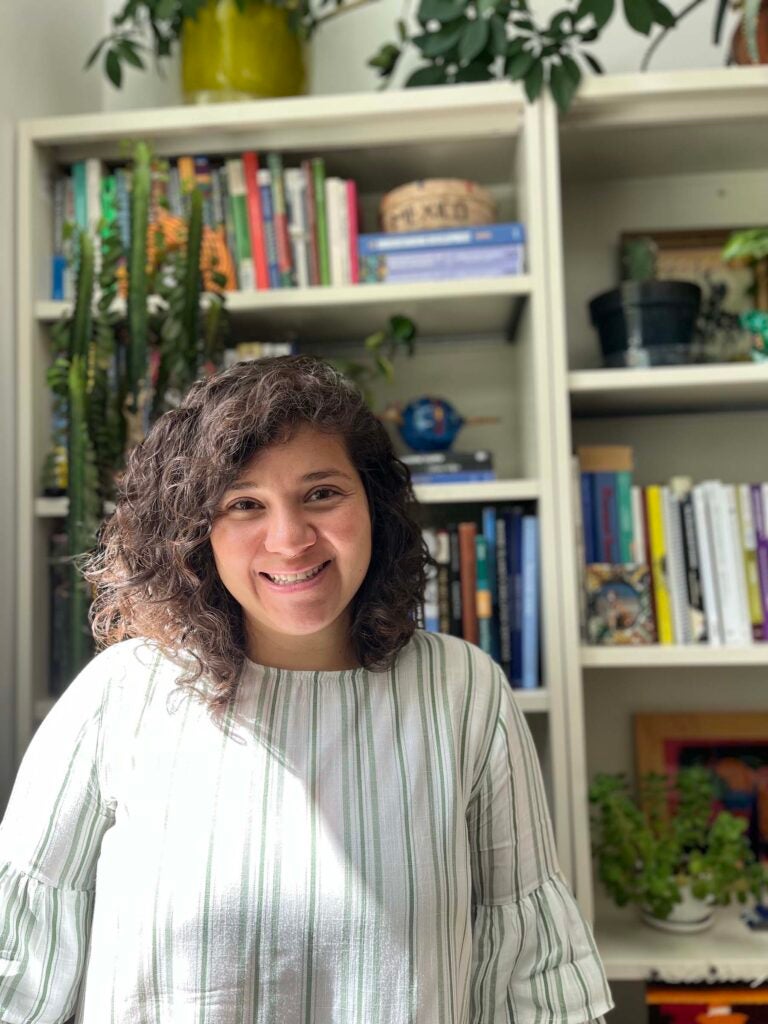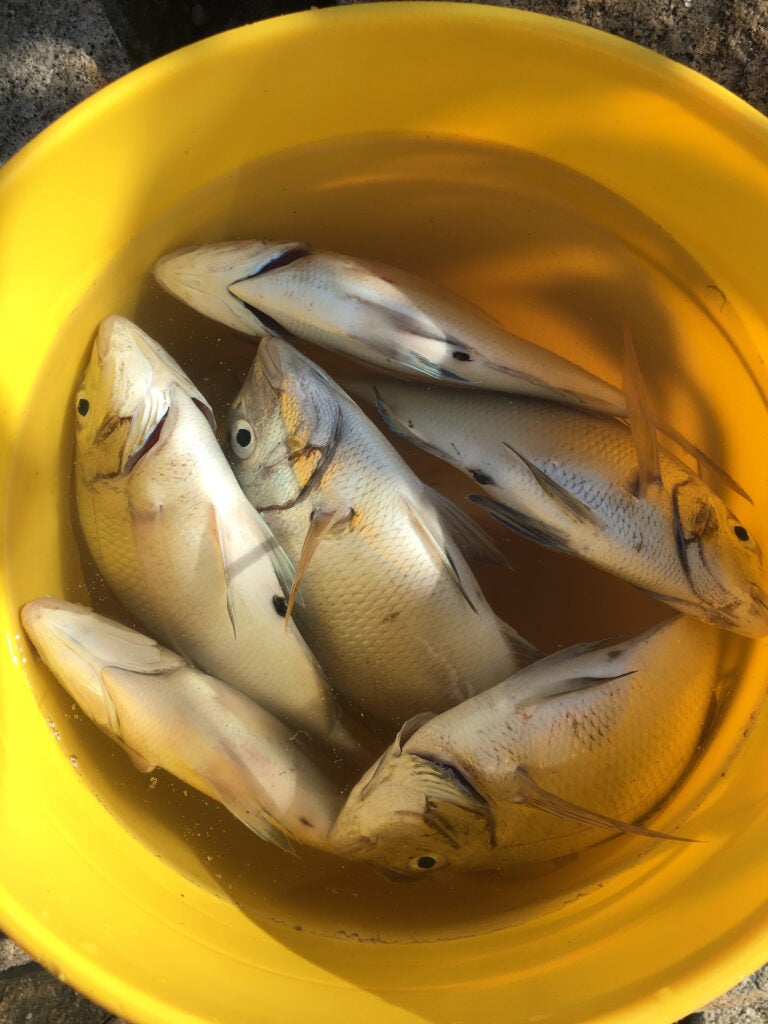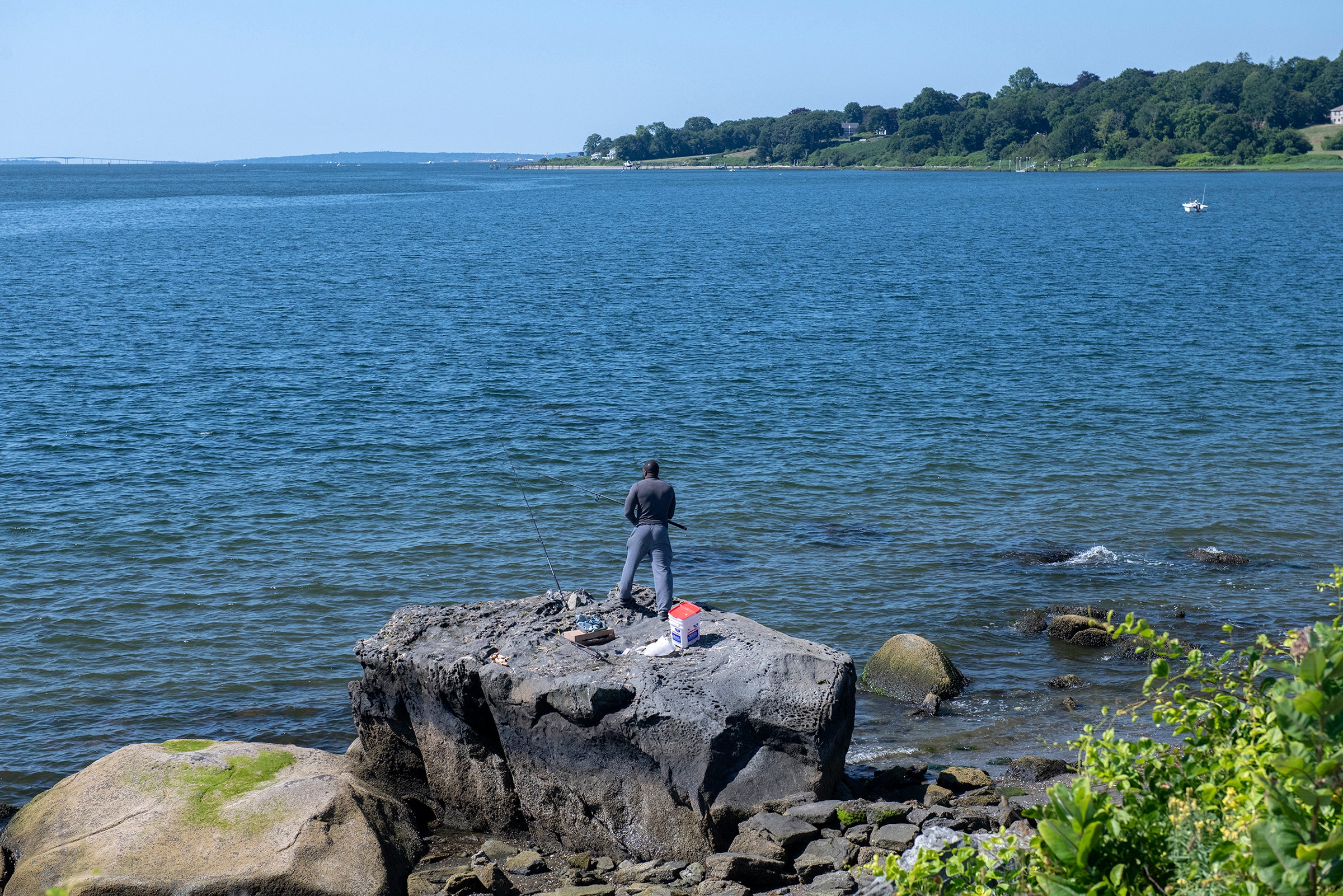KINGSTON, R.I. – Jan. 24, 2024 – During these chilly winter months, many Rhode Islanders are thinking ahead to summer.
Melva Treviño Peña is, too, but perhaps not in the way you might think. The assistant professor at the University of Rhode Island is making plans for summer to examine how fishing in Rhode Island is more than a matter of recreation.
Treviño, in the College of the Environment and Life Sciences, is examining ways to reframe coastal fishing access in the state, particularly for marginalized ethnic and racialized communities. She plans to document the experiences of Rhode Island’s communities of color so that their perspectives can be taken into account in decision-making regarding coastal access.

She also aims to understand how such communities can improve food security and overall well-being by fishing and consuming fish caught along Rhode Island’s coast and hopes the findings lead to opportunities to create policies that reduce barriers to coastal access for all Rhode Islanders. The project is funded by Rhode Island Sea Grant.
Treviño and her URI colleagues are joined in the project by partners at the Center for Southeast Asians of Rhode Island and the Refugee Dream Center.
“These agencies have outreach and access that we don’t have,” she says. “These partnerships are helping us be more effective; this research is happening because of them.”
Treviño’s work focuses on working with immigrant fishers in Rhode Island. Ocean-based food systems can sometimes be forgotten or overlooked in agricultural discussions, she says.

Treviño started conducting focus group interviews last year to develop preliminary assessments of consumer knowledge of seafood and understanding of risk by recent immigrant groups in Rhode Island. Many fishers are not always aware of the health risks in eating fish or shellfish they catch that’s high in mercury or other contaminants, or know the contamination levels where they are getting their catch, she says.
Much information is out there but it can be overwhelming to recent immigrants, especially refugees. And seaside fishers are not a monolith. Recent groups arriving on Rhode Island shores bring their own perspectives on the sea and knowledge from their home cultures and traditions. Cambodian, Guatemalan, Portuguese — all bring different knowledge of species and fishing methods, and varying preferences, even to choice of fishing spot.
Treviño hopes to better understand the fishing habits of people at the water’s edge, saying, “There is a disconnect between information available and what people know. We want to help people who are fishing make informed decisions about the fish they are catching and serving at home.”
It’s a lot to untangle, fishing pun intended.
A new perspective
As a human geographer, Treviño is well-suited to open the discussion at URI and beyond. Her research focuses on the relationship between people and the environment, how power asymmetries impact natural spaces, and the implications for those making a livelihood from the environment. Originally from a town along the Coahuila, Mexico-Texas border, Treviño has conducted fieldwork in coastal Ecuador and lived in the U.S. Southwest, Midwest, and Pacific Northwest, so she brings extensive experience to her work in the smallest state.
In the year ahead, she’ll begin direct research at coastal sites across the state. With 400 miles of coastline in Rhode Island, she’ll have plenty from which to choose. Treviño will conduct research at a number of points along Narragansett Bay, hoping to create a better picture of who’s fishing in Rhode Island today and why.
Many Rhode Islanders fish for more than food; they’re fishing for important cultural and other reasons, and their voices are not always heard in management and policy discussions. And important information about fish and seafood is not necessarily getting to them.
“There’s a lot of people who fish for food,” Treviño says, “but it’s more than that. Coastal access is an important issue in Rhode Island. It’s a political matter. Fishing is meant for Rhode Islanders of all colors and backgrounds.”
Historically, fishing areas have been viewed as recreational, but Treviño says it doesn’t need to be one or the other, recreational or commercial fishing.
“Coastal access is more than just for fun,” she says. “Fishing feeds people and is important to cultural heritage and family traditions. This is important for people, including those not always present in the discussions.”
Treviño hopes that URI’s research can lead to better information sharing for consumer health and adding to the discussion about coastal access for recreation and food fishers.
An even footing
While Rhode Island’s Southeast Asian community has a cultural comfort around the water, historically, the Refugee Dream Center works with non-coastal immigrants to Rhode Island. The ocean can be an unfamiliar and sometimes scary entity for many.
Some immigrants come from coastal areas, others from landlocked countries. Afghans, for instance, fished in rivers in their home country; the Congolese in lakes. Recent refugees arriving in Rhode Island were curious to know if they would find crocodiles in New England waters, since they fished in Lake Tanganyika, home to some of the largest crocodiles in the world.
New arrivals on Rhode Island shores bring with them all of their past water knowledge and now need to translate that to the realities of life in southern New England.
“They want to fit into their new home and find places to fish; these are expeditions in their new homeland that can have a positive impact,” Treviño says. Research by recent Honors Colloquium speaker Wallace Nichols and others speak to the proven benefits of being by the water.
For many new Rhode Islanders, some arriving having experienced significant trauma, this experience can be healing. Case workers at organizations like the Refugee Dream Center want the refugees they’re working with to visit the Rhode Island coastline, knowing that access to the sea can be therapeutic for people, as they knit into their new home community.
So while Treviño is surveying about fishing, her work is about more than the day’s catch.
“I’m excited to see URI help contribute to improved ocean access and a better Ocean State for all,” she says.

